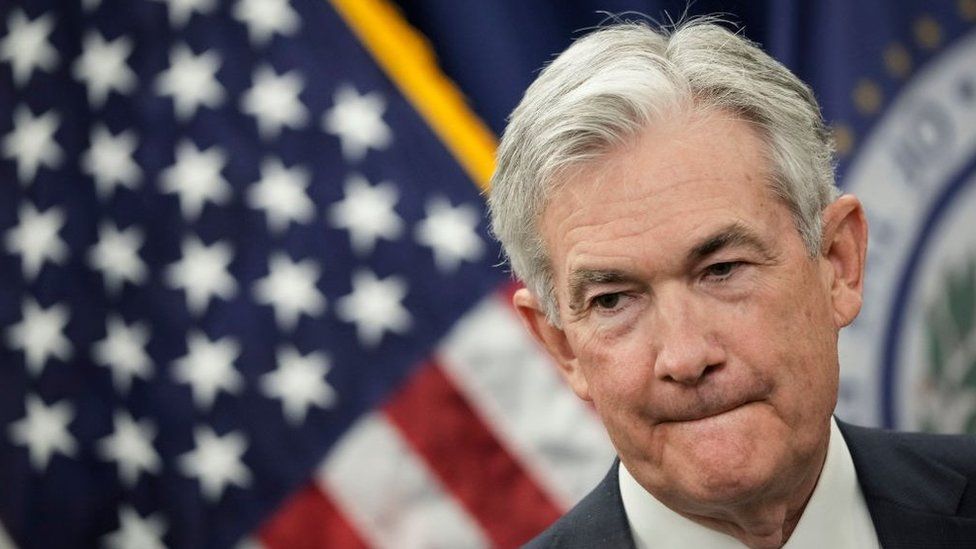 The US central bank has announced its biggest interest rate rise in nearly 30 years as it ramps up its fight to rein in soaring consumer prices.
The US central bank has announced its biggest interest rate rise in nearly 30 years as it ramps up its fight to rein in soaring consumer prices.
The Federal Reserve said it would increase its key interest rate by three quarters of a percentage point to a range of 1.5% to 1.75%.
The rise, the third since March, comes after inflation in the US surged unexpectedly last month.
More hikes are expected, adding to the uncertainty facing the economy.
Forecasts released after the meeting showed officials expect the rate the Fed charges banks to borrow could reach 3.4% by the end of the year, the moves rippling out to the public in the form of higher borrowing costs for mortgages, credit cards and other loans.
As central banks around the world take similar steps, it marks a massive change for the global economy, where businesses and households have enjoyed years of low borrowing costs.
“Most advanced economy central banks and some emerging market central banks are tightening policy in sync,” said Gregory Daco, chief economist at strategy consulting firm EY-Parthenon.
“That is a global environment that we’ve not been accustomed to in the past few decades, and that will represent ramifications for the business sector and for consumers throughout the world.”
In the UK, where consumer prices jumped 9% in April, the Bank of England is expected to announce its fifth rate rise since December on Thursday, pushing its benchmark rate above 1% for the first time since 2009.
Brazil, Canada and Australia have also raised rates, while the European Central Bank has outlined plans to do so later this summer.
In the US, which slashed rates to support the economy when the pandemic hit in 2020, the Fed has already raised rates twice this year, by 0.25 percentage points in March and another half point in May.
At the time, Federal Reserve chairman Jerome Powell said officials were not considering sharper rises.
But figures on Friday, which showed US inflation rising to 8.6% in May – the fastest pace since 1981 – pushed officials to move more aggressively, Mr Powell said at a press conference following this week’s meeting.
“It is essential that we bring inflation down,” he said, acknowledging that a 0.75 percentage point rise was “unusually large”.
“Inflation has obviously surprised to the upside over the past year and further surprises could be in store,” he said. “We therefore will need to be nimble.”
Many analysts say the Fed is struggling to catch up, after Mr Powell and others last year dismissed price rises as a temporary problem related to supply chain issues.
Since then, inflation has sharpened due to factors like the war in Ukraine and ongoing Covid-19 shutdowns in China.
Recent surveys suggest the public expects the problem will continue to worsen, despite the Fed’s vows to act.
“The Fed is under the gun and facing an inflation credibility test,” said economist David Beckworth, senior research fellow at the Mercatus Center at George Mason University. (Courtesy BBC)


Post a Comment